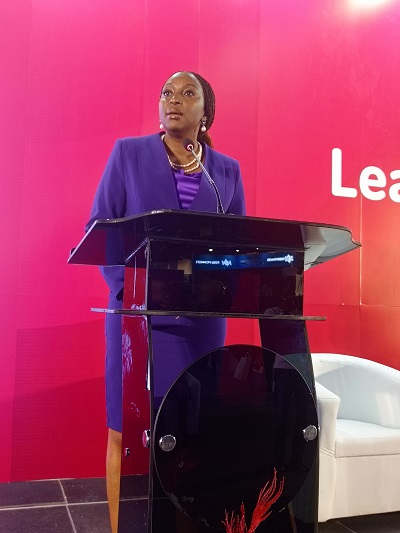Dr. Owen Omogiafor, Group CEO of Transcorp Plc
…Energy poverty is a clear danger to Africa.
…Transcorp accounts for 10% generated power.
-Felix Douglas
In her keynote address at the Nigeria Energy Exhibition & Conference in Lagos, Group Chief Executive Officer (CEO) of Transcorp Plc, Dr. Owen Omogiafor, pointed out that Africa is blessed with rich natural resources. The continent has abundant water resources, green land and fertile farmland, but it has huge gap in energy.
Speaking further at the conference, Omogiafor asserted that in May, she represented the continent at the German-African conference on energy.
Surprisingly, Germany has 80 million people and generates 51 Megawatts (MW) for its population, but Nigeria with 220 million people generates between 5000 to 8000 MW, which is 5 to 8 gigawatts. Germany, with 80 million people generates 50 gigawatts but Nigeria with 220 million people has 5 gigawatts.
Obviously, “there’s a clear and present danger in such statistics. It clearly explains to you that there is no way we would achieve the economic transformation that we so desire as a country with that kind of energy statistics,” Omogiafor stated.
The Group CEO of Transcorp revealed that Africa has teeming young people and the job market is constricted with universities churning out graduates.
“We have these people who we need to bridge the energy gap for because energy poverty is a clear and present danger to the continent of Africa.”
Omogiafor made it known that it will be unrealistic to do away with existing energy sources and move on to new ones. “Because if you run large scale industries, at least today, we still have that space to see, how do we drive a lot more of our grid power harness our resources so we can bridge that gap.”
Access to energy is a fundamental human right not a privilege. Public private partnership can work together to achieve greater goal in an enhanced conversations with stakeholders across board.
The Group CEO of Transcorp disclosed that the company has investments in generation and distribution sectors of the power industry. Transcorp accounts for about 15% of Nigeria’s installed electricity capacity.
Omogiafor stated further that on a daily basis, Transcorp accounts for about 10% but considering the actual numbers, it’s no longer as impressive compared to electricity needs.
“But one thing I can tell you is that to be in the power sector, you require a lot of patients, and you also require patient capital. You can’t do like regular short term lending, and expect that your business will survive, you will go down.
“We saw the past few years, recently, some distribution companies going into receivership and coming into new owners. It’s not necessarily because they were reckless. It’s because it’s not the easiest of businesses to run.”
Transcorp has 12 to 14 years experience in the power sector in Nigeria.
Firstly, it took over the Ugheli power plant with 160 MW generation capacity, it was up to 600 MW and before the end of 2024 hopefully, it will be 625 MW.
The Transcorp boss explained that the power company was listed on the Nigeria Stock Exchange. It was listed based on the concept of social wealth.
“Instead of keeping wealth at the hands of a few, distribute it so that others have access and benefit from it.”
Transcorp became owners of the asset through privatisation formerly owned by the government. The success of Transcorp showed businesses should be run by private owners while government ought to be involved in policy making in order to create enabling environment for private sector protagonists to thrive and deliver on the intent of developing the society.
She urged the private sector to be involved in developing the society.
The story of Singapore and India including other Asian countries is a testament of private sector progress through collaboration.
Private sector’s role is to create wealth for the country, Africa and the world at large.
She encouraged private sector to think broadly outside the box not of replacing but adding because there is a huge gap in Nigeria for generated power.
In the power sector, the government should be supported towards ensuring that it bridge the gap in Nigeria by removing energy poverty and reduce it.


Comment here